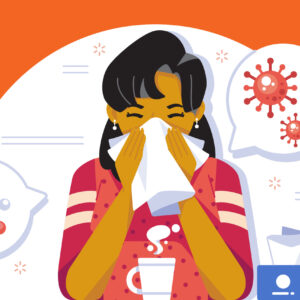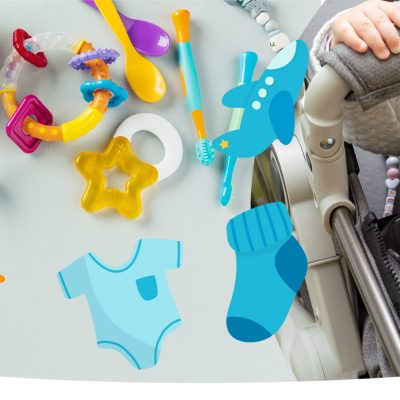Why is it important to observe the rules of hygiene in winter? How can we protect ourselves from the cold and viruses? What products are recommended by health professionals?
Winter is a particularly harsh time for our health. Viruses such as influenza and even covid-19 represent a real threat to sensitive individuals when the temperature drops and the cold sets in.
That’s why it’s so important to protect yourself from the cold, to avoid contracting winter infections.
Here’s a closer look at basic hygiene and the right gestures to observe during winter to prevent winter illnesses.
Hand washing
Hand hygiene is essential in winter to avoid transmitting or contracting bacteria and viruses, according to the WHO.
The organization recommends that you always wash your hands after going to the toilet, before cooking and eating, after going outdoors, and especially after using public transport.
Objects such as metal, paper or fabric are places where viruses can settle and infect hands when touched. This is why hand washing with soap and water, or hand disinfection with a hydroalcoholic solution containing at least 60% alcohol, is essential after contact.
You should also remember to disinfect your hands after blowing your nose, and always use a single-use handkerchief to do so. The latter should be thrown in the garbage can to limit the spread of viruses.
Limiting contact
Limiting contact is not only a precaution to take when you’re ill, but also an effective preventive measure during epidemics. To limit the risks, avoid shaking hands, even when they are clean. It is possible to remain polite by greeting each other verbally, especially since limiting physical contact has become a social rule since the covid 19 pandemic.
The health authorities also advise people to limit the use of public places such as public transport and markets as much as possible, so it’s best to get around on foot if possible and avoid crowds when they are too dense.

Covering mouth and nose
Until now, wearing a mask in public places has been compulsory. This recommendation must be scrupulously respected, as it effectively combats the spread of microbes and bacteria.
To this end, it is essential to use a clean mask and change it regularly, to cover the nose and mouth properly, and to avoid lowering the mask to chin level when speaking.
Covering your nose and mouth is also an essential reflex in the event of a cough or cold, as sprays are real virus vectors. Never use the palms of your hands if you don’t have a mask, and always cover your face with a handkerchief or the crease of your elbow.
A balm can be useful in case of flu, to help you breathe easier and fight the illness more effectively. Balm Ravintsara Tsara, for example, has been formulated to clear the respiratory tract in the event of infection.
Taking care of your home
Household hygiene is also an effective way of protecting yourself against winter illnesses, which are transmitted by respiratory transmission and contact.
Even if it’s not possible to do a thorough house-cleaning every day, a few small gestures are essential to ensure a healthy indoor environment. Firstly, rooms should be aired for at least 10 minutes every day to renew the air. As for those who use indoor heating, they must take care not to overheat their homes, as the warmer the air, the drier it becomes and the more sensitive the respiratory tract. A constant indoor temperature of 19°C is recommended for good health.
You should also remember to disinfect the various surfaces in your home that are likely to be virus vectors, including door handles, computer keyboards, remote controls, telephone screens and toilet flush buttons. Disinfectant wipes and sprays containing 70% alcohol can be used to clean these surfaces thoroughly.
Eating healthy
Protecting yourself from the cold and the illnesses it may cause also involves a healthy daily diet. In winter, we recommend eating nutritious foods rich in vitamins, minerals and trace elements. The vitamin C contained in certain fruits such as oranges, for example, provides effective protection against viruses, while oilseeds such as dried beans contain vitamin E, which boosts the immune system.
Seafood is also a source of trace elements, which boost the immune system.






